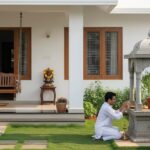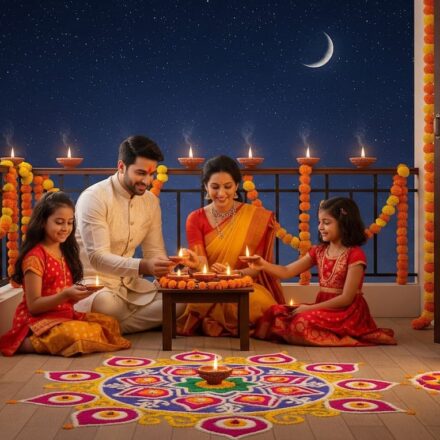
The Timeless Wisdom of the Rigveda: “Bhadram Karnebhiḥ” and Modern Well-Being
The ancient Rigveda holds verses that continue to inspire and guide humanity towards a life of purpose, health, and happiness. Among its most celebrated mantras is:
भद्रं कर्णेभिः शृणुयाम देवा भद्रं पश्येमाक्षभिर्यजत्राः ।
स्थिरैरङ्गैस्तुष्टुवांसस्तनूभिर्व्यशेम देवहितं यदायुः ॥
Gods, may we with our ears listen to what is good, and with our eyes see what is good. Praising you, with bodies having firm limbs, may we enjoy the God-given span of life. — Rig Veda 1.89.8
This invocation emphasizes listening and seeing what is “bhadram”—goodness—in all experiences, fostering wholeness, health, and ethical living. Its relevance today is underscored by discoveries in psychology and psychiatry, offering a bridge between ancient insight and modern science.
The Core Message: Bhadram—Holistic Well-Being
Bhadram encompasses more than simple happiness; it is the aspiration for a dharmic (ethical), moral, and prosperous existence. The mantra calls us to:
• Tune our senses toward positive, uplifting experiences
• Strengthen the body and mind
• Cultivate gratitude for the span of life itself
These ancient ideas align with contemporary frameworks of mental health and flourishing.
Resonance with Modern Psychology
Attentional Focus and Positive Perception
The mantra asks for the ability to “hear what is good” and “see what is good,” paralleling the concept of positive attentional bias in psychology. Research has shown that focusing on positive stimuli can:
• Enhance mood and resilience
• Build a sense of hope and optimism
• Bolster overall mental well-being
Mindful attention, a therapeutic practice, is now used widely to re-train the mind towards positivity—just as the mantra advocates.
Embodied Health and Mind-Body Connection
The prayer for “bodies having firm limbs” highlights the Vedic vision of embodied health. Modern psychiatry recognizes that:
• Physical health and mental health are deeply intertwined
• Practices such as exercise and yoga have proven benefits for anxiety, depression, and stress
Integrating body, mind, and spirit is at the heart of both ancient and modern health wisdom.
Gratitude and Praise
“Praising you” reflects the practice of gratitude, shown to:
• Improve emotional regulation
• Increase life satisfaction and well-being
• Reduce symptoms of depression and anxiety
Regular gratitude activities are now cornerstone interventions in psychotherapy.
Purpose, Morality, and a Fulfilled Life
The aspiration for a life aligned to the divine and beneficial to all (“देवहितं यदायुः”) mirrors what psychiatry calls meaning-making. Living with a sense of purpose—rooted in ethics and community—leads to:
• Stronger resilience to adversity
• Greater happiness and longevity
Applying the Mantra in Daily Life
Modern science and this Vedic prayer converge on several actionable practices:
• Mindful Living: Deliberately expose yourself to positive, uplifting information (music, speech, visuals).
• Self-Care: Prioritize physical health, knowing its positive effects on mental wellness.
• Gratitude Practice: Keep a gratitude journal or practice daily reflection.
• Pursue Meaning: Engage in activities that align with your core values and benefit others.
Conclusion
The wisdom of “Bhadram Karnebhiḥ” remains evergreen—urging us to cultivate healthy bodies, minds, and perceptions for a fulfilling, moral, and joyful life. As modern psychology continues to validate these ancient truths, their integration into daily living offers both individual and societal transformation—reminding us that true well-being is universal, holistic, and timeless. You don’t have to be a Hindu, whichever religion you practice you can show this gratitude and worship everyday, these verses are universal.
References:
Fredrickson, B. L. (2001). The Role of Positive Emotions in Positive Psychology: The Broaden-and-Build Theory of Positive Emotions. Harvard Health Publishing. The link between mind and body. Seligman, M. E. P. (2011). Flourish: A Visionary New Understanding of Happiness and Well-Being.










